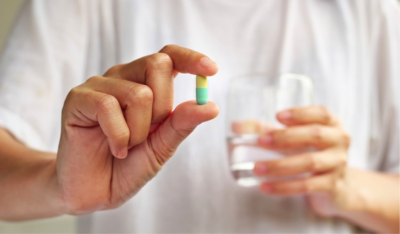Read the latest and greatest from our team
of incredible specialists.

Beach House Recovery Center » Blog » What to Consider Before Deciding to Detox at Home
Drug and alcohol dependence is a complex disease, and withdrawing from substances can bring on a host of complicated issues, including painful withdrawals and relapse. You might think because you’re mentally prepared to end your dependence on drugs or alcohol, you will be able to beat your addiction at home. While it is possible for everyone to live a life free of substances, quitting without professional support and supervision can be risky.
Here are a few things you should consider before deciding to detox at home:

Although many people throw around the term “detoxing” for everything from cutting sugar out of their diet to doing a juice cleanse, trying to go cold turkey from drugs and alcohol can be life threatening for some addicts. Withdrawing from alcohol at home can be incredibly dangerous, and includes the risk for seizures, dehydration and heart failure. The symptoms of Alcohol Withdrawal Syndrome (or “AWS”) can also include tremors or hallucinations, in addition to the emotional fallout, which can involve confusion or agitation.
The withdrawal side effects from drugs differ widely, depending on the substance and usage. Ending benzodiazepine usage, for example, can put an addict at risk for seizures, nausea and heart palpitations, in addition to other symptoms (including panic attacks and tremors). Heroin withdrawal can cause a host of physical ailments, like muscle aches, profuse sweating, nausea and cramping, in addition to painful cravings and emotional distress. Suicidal thoughts are also common during the detox process, especially for meth and alcohol addicts. No matter what substance you are quitting, you should talk to your doctor or a medical professional before attempting an at-home detox.
Because of the emotional and physical side effects and how ingrained unhealthy habits can be, the likelihood of recovering from an addiction by yourself is very small. Success rates go up dramatically when addicts enter in-patient treatment centers, where they are supported by professionals and are given tools for sober living when they return home.
Because withdrawals can be so painful, both physically and mentally, many people begin using again during this period. The distress sets in, and they turn to their substance of choice, and another chance at sobriety is lost. While many people have to try to quit more than once before getting sober, being in an inpatient treatment center will mean you can detox safely. You will have a professional watching you 24 hours a day, and there is no access to substances. There’s a saying in recovery that you won’t die during withdrawals, but you’re going to want to. When those feelings settle in at a treatment center, you will be cared for and supported.
Many people believe that inpatient treatment will be too costly for them, but the notion that rehabilitation centers are just for the rich is not true. Insurance companies have started to understand that addiction is a disease, which requires the same medical care as other illnesses. Your health insurance might cover most, if not all, of the costs of your treatment.
Depending on the type of dependence, doctors might prescribe drugs, like methadone or buprenorphine, to help end an addiction. At Beach House, we believe everyone can live a life free of drugs and alcohol. We try to help everyone who comes through our door to find that freedom. We want our patients to experience recovery, not maintenance.
Addiction can be a symptom of a lack of connection—to yourself or a higher power or a community. Detoxing under the care of compassionate professionals (many of whom have been in your position before) can help you begin to bring a sense of belonging back into your life. Addiction can be isolating and lonely, but the process of recovering can be filled with people who genuinely care about helping you live a sober life.
Save
Whether you’re researching for yourself or a loved one, Beach House can help. We understand that this is a serious time in your life and that the treatment center you choose matters. We want you to feel comfortable and empowered to make the right decision for yourself, a friend, or a family member. This is why a counselor is waiting and available to answer your questions and help put your mind at ease regarding the next steps. Many of the staff at Beach House have walked in your shoes. If you feel you’re ready or want more information about how to help a loved one, we can help today. You can also learn why we are voted the #1 rehab for addiction treatment in Florida.
We accept most major insurance plans and can verify your benefits quickly and confidentially.
We’re committed to helping you access the care you need, our admissions counselors can guide you through your coverage options and available resources.





"*" indicates required fields